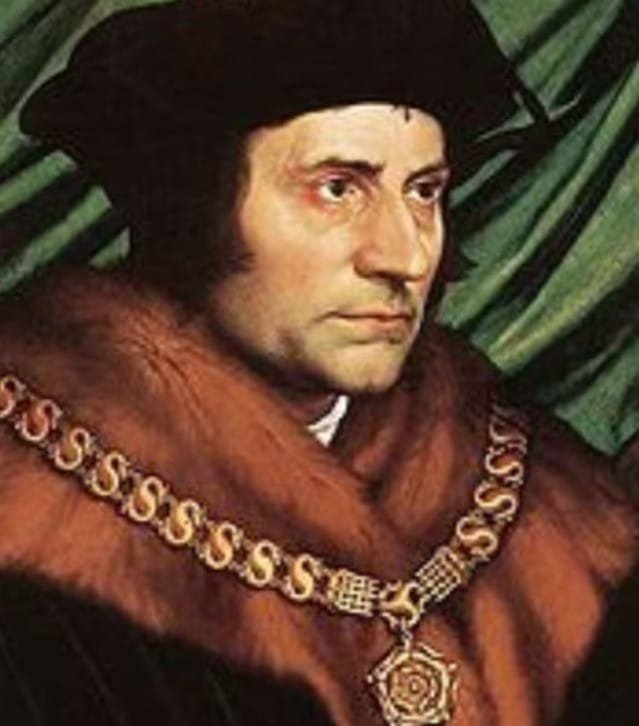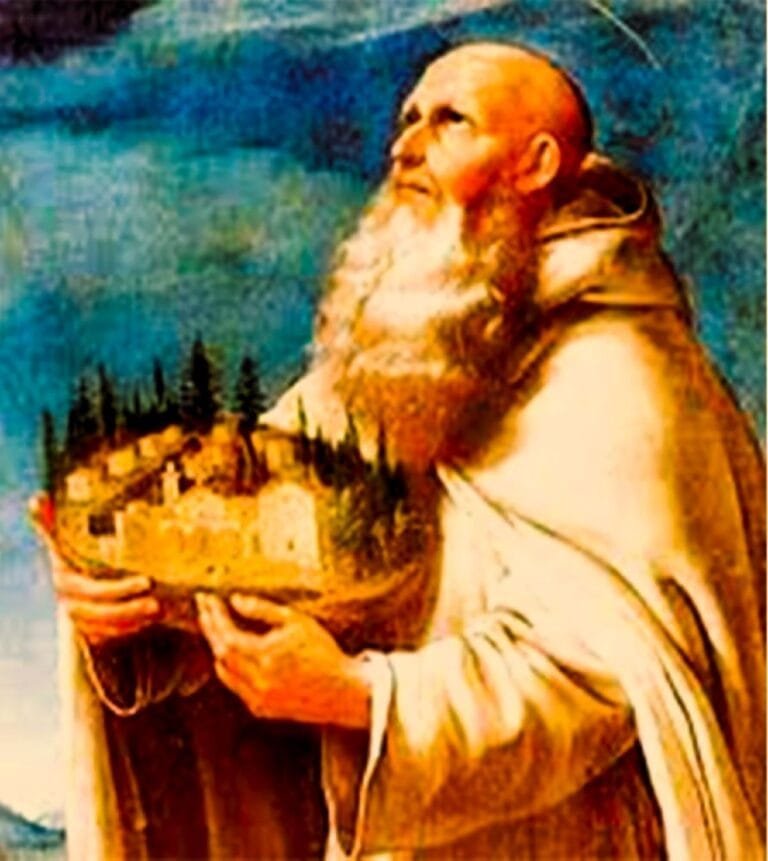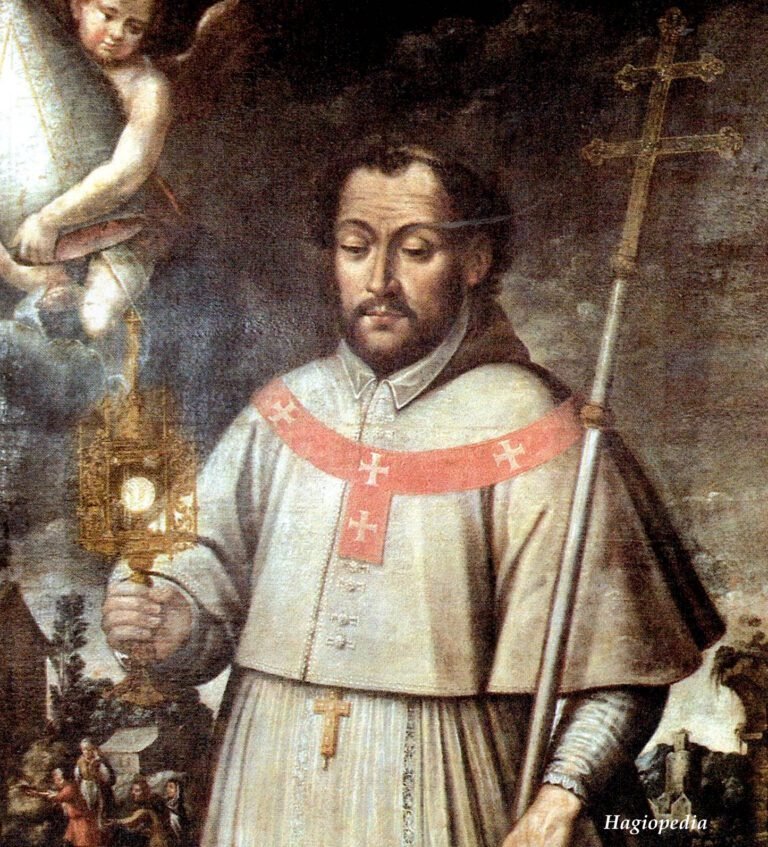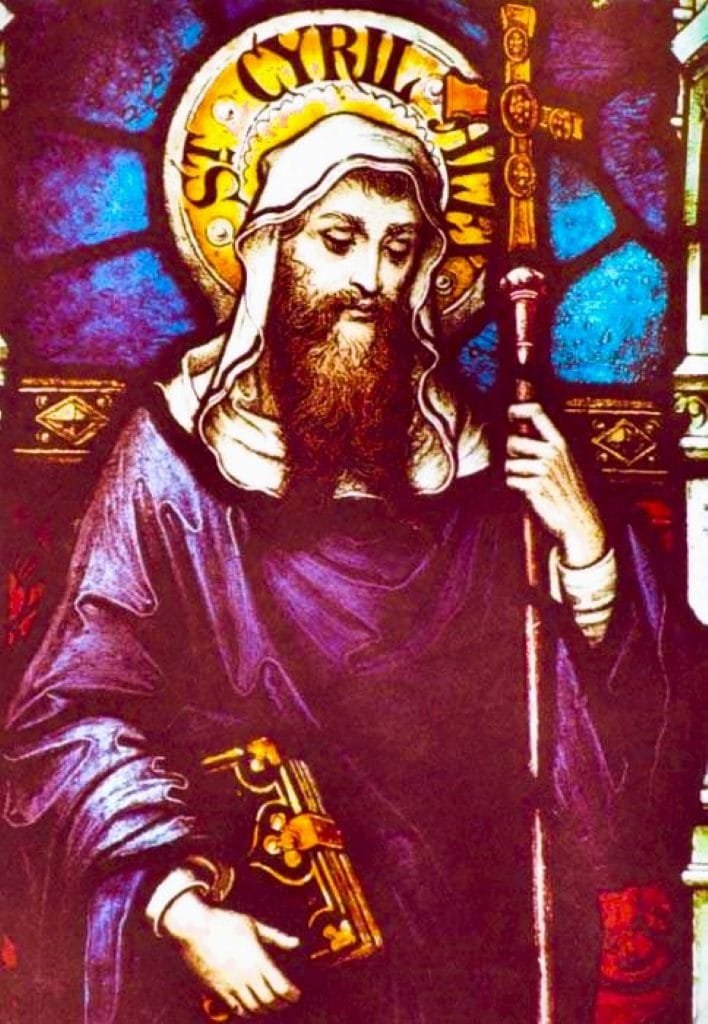June 22: ST. JOHN FISHER & ST. THOMAS MORE

John Fisher was ordained priest in 1491. He held several teaching posts at the University of Cambridge, and at the same time was responsible for the spiritual direction of Queen Margaret, the mother of Henry VIII. He later occupied the Chair of Theology which the Queen had endowed at Cambridge. Early in 1504 he was named vice-Chancellor of Cambridge University and at the end of the year was consecrated Bishop of Rochester, the smallest and poorest diocese in England. Two days later he was appointed to office as a member of the King’s Council.
Thomas More studied Literature and Philosophy at Oxford and Law at New Inn. In 1504 he was elected member of Parliament and held several public offices. He earned great prestige because of his knowledge of the law and his integrity. Although his professional life was intensely time-consuming, he always found time for his family, which was his most important concern, and for his literary and historical studies. He published various books and essays. In 1529 he was appointed Lord Chancellor of England, in spite of having made it clear to the King that he could not agree with the dissolution of the King’s marriage. Taking a full interest in the problems of his day, he dedicated himself to his work with the desire of implementing the laws and institutions of his times with a Christian approach.
Both men were beheaded in 1535 for refusing to recognise the supremacy of Henry VIII over the Church in England and the annulment of the King’s marriage.
St. John Fisher and his friend St. Thomas More gave up their lives in testimony to the unity of the Church and to the indissolubility of Marriage. They suffered martyrdom through beheading under King Henry VIII.
With good hope, I shall commit myself wholly to God
From a letter of St, Thomas More to his daughter, Margaret
Although I know well, Margaret, that because of my past wickedness I deserve to be abandoned by God, I cannot but trust in his merciful goodness. His grace has strengthened me until now and made me content to lose goods, land, and life as well, rather than to swear against my conscience. God’s grace has given the king a gracious frame of mind towards me, so that as yet he has taken from me nothing but my liberty. In doing this His Majesty has done me such great good with respect to spiritual profit that I trust that among all the great benefits he has heaped so abundantly upon me I count my imprisonment the very greatest. I cannot, therefore, mistrust the grace of God. Either he shall keep the king in that gracious frame of mind to continue to do me no harm, or else, if it be his pleasure that for my other sins I suffer in this case as I shall not deserve, then his grace shall give me the strength to bear it patiently, and perhaps even gladly.
By the merits of his bitter passion joined to mine and far surpassing in merit for me all that I can suffer myself, his bounteous goodness shall release me from the pains of purgatory and shall increase my reward in heaven besides.
Iwill not mistrust him, Meg, though I shall feel myself weakening and on the verge of being overcome with fear. I shall remember how Saint Peter at a blast of wind began to sink because of his lack of faith, and I shall do as he did: call upon Christ and pray to him for help. And then I trust he shall place his holy hand on me and in the stormy seas hold me up from drowning.
And if he permits me to play Saint Peter further and to fall to the ground and to swear and forswear, may God our Lord in his tender mercy keep me from this, and let me lose if it so happen, and never win thereby! Still, if this should happen, afterwards I trust that in his goodness he will look on me with pity as he did upon Saint Peter, and make me stand up again and confess the truth of my conscience afresh and endure here the shame and harm of my own fault.
And finally, Margaret, I know this well: that without my fault he will not let me be lost. I shall, therefore, with good hope commit myself wholly to him. And if he permits me to perish for my faults, then I shall serve as praise for his justice. But in good faith, Meg, I trust that his tender pity shall keep my poor soul safe and make me commend his mercy.
And, therefore, my own good daughter, do not let your mind be troubled over anything that shall happen to me in this world. Nothing can come but what God wills. And I am very sure that whatever that be, however bad it may seem, it shall indeed be the best.
COLLECT
O God, who in martyrdom have brought true faith to its highest expression, grant graciously that, strengthened through the intercession of Saints John Fisher and Thomas More, we may confirm by the witness of our life the faith we profess with our lips, Through our Lord.
EXCERPT OF A MEDITATION ON ST. THOMAS MORE
- A good husband and father
- Bringing the light of the Gospel to every sector
- A heroism forged day by day
SAINT THOMAS MORE was born in 1478 and died a martyr in 1535. A prestigious lawyer and statesman, he held various public offices and in 1529 became Lord High Chancellor of England. His legal and political career was combined with intense study of the humanities, and he came to be considered one of the outstanding Renaissance figures. Erasmus of Rotterdam, another of the famous humanists of the time, expressed enormous admiration for him: “Unless my great love for him deceives me,” he wrote, “I don’t think that nature has ever forged a more skillful, more ingenious, more circumspect, more refined character. He is the sweetest of friends, with whom I enjoy sharing both serious and humorous moments with great delight.”[1]
Thomas More had abundant and absorbing occupations both in the law tribunals and the King’s court. But realizing that his professional obligations might lead him to neglect his own home, he always tried to ensure that the most important thing in his life was being a good husband and a good father. In a letter to his eldest daughter written during a trip that forced him to be away from home for some time he wrote: “I assure you that before letting my children and family suffer due to my lack of care, I am ready to spend my entire fortune and set aside business and professional concerns in order to dedicate myself entirely to you.”[2]

Indeed, he did all he could to ensure that his home was always a place of happiness and, at the same time, a small “family school.” Both Thomas himself and well-prepared teachers taught humanistic and scientific disciplines, along with Christian doctrine, to the five children living there. But in a letter to one of the tutors he made clear what is truly important in education: “The essential thing is to foster in them a virtuous life; study should occupy only a second place. Therefore they should study the subjects that lead them to be faithful to God, to love their neighbor, to be modest and have Christian humility. Then they will attain the grace of a good reputation, and won’t be frightened by the thought of death, since their hearts will be filled with true joy.”[3]
SAINT JOSEMARIA had devotion to Saint Thomas More. In 1954 he named him intercessor of Opus Dei for relations with civil authorities. During his stays in Great Britain between 1958 and 1962, he frequently went to pray before his mortal remains in Canterbury. And he encouraged one of his sons to write a biography about this English saint, who seemed to him an excellent example of lay holiness, attained with God’s grace in the middle of the world and confronting the cultural conflicts of his time.[4] For it is the lay faithful, ordinary Christians, who are called to illumine with the light of the Gospel every sector of society: the family, the work place, the world of culture. Their role is “to testify how the Christian faith constitutes the only valid response to the problems and hopes that life poses to every person and society. This will be possible if the lay faithful will know how to overcome in themselves the separation of the Gospel from life, to again take up in their daily activities in family, work and society, an integrated approach to life that is fully brought about by the inspiration and strength of the Gospel.”[5]
Saint Thomas More was exemplary both in his service to civil society and in his contribution to deepening the culture of his time. Also today Christians are called to strive to transform the world, convinced that it belongs to us because it is our home and our homeland. “Knowing that we are children of God, called by him, we cannot feel like strangers in our own home. We cannot go through this life as visitors in a foreign land nor walk through our streets with the fear of a person who treads on unknown ground. The world is ours because it belongs to our Father God. We are called to love this world, not another in which we think we might feel more comfortable; we need to love the specific people around us, in the specific challenges that lie ahead.”[6]
THOMAS MORE attended Mass each day. On Sundays he took part in his parish choir. Despite his social standing, he didn’t expect any special treatment from other choir members. When some nobles remarked that the king might be displeased that his Lord High Chancellor didn’t seek to be treated with greater deference in public, Thomas replied with his keen wit: “It is not possible for me to displease my lord the king while paying public homage to the Lord of my king.”[7] He loved his native land and his king with his whole heart. But he loved God above all else. Hence when the tragic moment arrived when he had to choose between being faithful to Christ or submitting to a law that violated his conscience, Thomas More embrace God’s will without reservation, knowing that his livelihood and even his life were at stake.
Stay updated: subscribe by email for free TO OUR NEW WEBSITE www.catholicsstrivingforholiness.org (PUT YOUR EMAIL IN THE SUBSCRIBE WIDGET).
We are also in www.fb.com/Catholicsstrivingforholiness. Kindly help more people in their Christian life by liking our page and inviting your family, friends and relatives to do so as well. Thanks in advance and God bless you and your loved ones! Fr. Rolly Arjonillo


